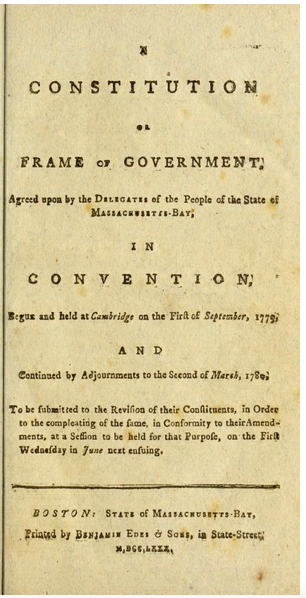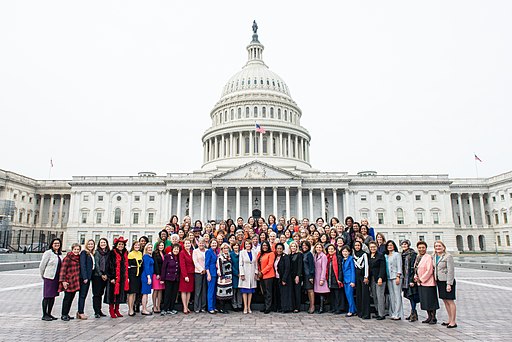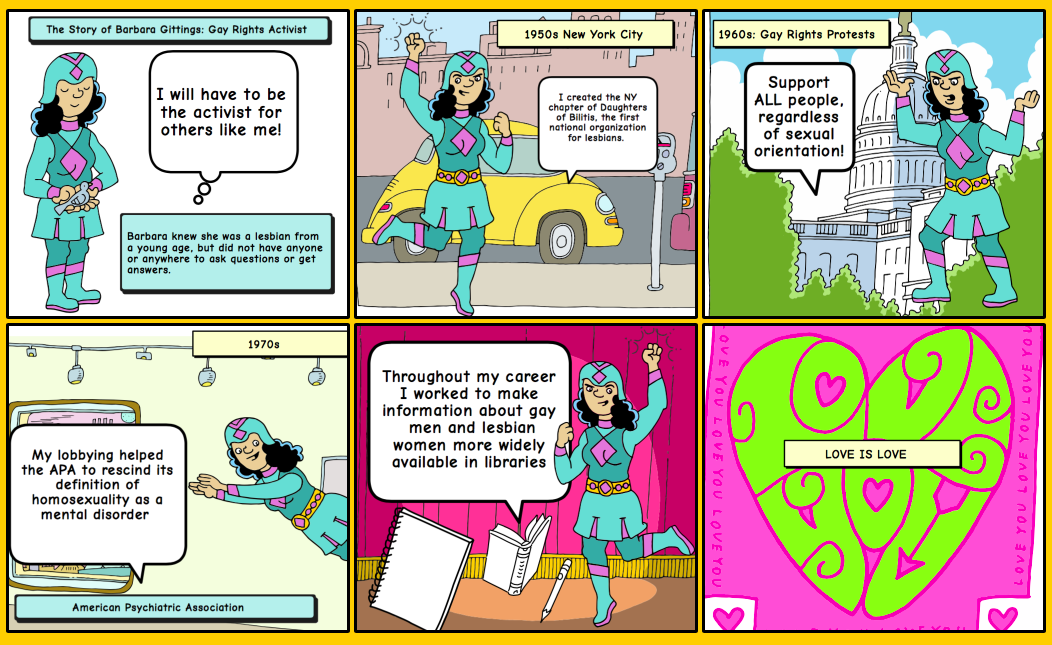Standard 6.6: Additional Provisions of the Massachusetts Constitution
Identify additional protections provided by the Massachusetts Constitution that are not provided by the U.S. Constitution. (Massachusetts Curriculum Framework for History and Social Studies) [8.T6.6]
 Title page of the first published edition of the original 1780 Massachusetts Constitution,
Title page of the first published edition of the original 1780 Massachusetts Constitution,
State of Massachusetts, Public DomainIn the United States, constitutions establish the essential framework for democratic government at the state and national level. Despite peoples’ different genders, ethnicities, religions, and social and economic positions, a constitution “binds us all together” as members of a nation (Is the Constitution Important? Bill of Rights Institute, 2011, para. 2).
Written by John Adams in 1780, the Massachusetts State Constitution is the oldest still-functioning written constitution in the world. It served as a model for the federal Constitution. It set forth a "government of laws, and not of men" (see John Adams & the Massachusetts Constitution by Mass.gov).
According to many historians, the Massachusetts Constitution is the more expansive and democratic document - providing greater protections and liberties than the federal Constitution. It stated a commitment to education for all through public schools and it protected the free exercise of religion. It included "provisions dealing with search and seizure, self-incrimination, confrontation of witnesses, cruel and unusual punishment, freedom of the press and right to petition" and stated that people had the right to frequent elections, an independent judiciary and a clear separation of powers between the branches of the government (Teaching American History Project, Ashbrook Center at Ashland University, 2020, para. 1).
In the 21st century, the state of Massachusetts, guided by the Massachusetts Constitution, continues to expand liberties and protections for individuals and groups. To explore this standard, we look at the differences between the federal and state constitutions and examine the effort to incorporate gender-inclusive language in state constitutions and laws. In addition, we consider whether Massachusetts, the first state to legalize marriage for same-sex couples, should mandate an LGBTQIA-inclusive curriculum in its K-12 schools. You can learn more about people's taxes and how they are spent in Topic 6.9 of this book.
1. INVESTIGATE: Comparing the Federal and Massachusetts Constitutions
An article from WGBH News, "4 Things Worth Knowing about the Massachusetts Constitution" discusses key differences between the federal and Massachusetts Constitutions. The first section of the Massachusetts Constitution lists 30 fundamental rights while the federal Bill of Rights has only 10. The more expansive set of rights in the Massachusetts Constitution were the basis for court decisions that ended slavery in the state (a 1781 court case, Brom and Bett v. Ashley; see Standard 6.2 Elizabeth Freeman (Mum Bett) and the Abolition of Slavery in Massachusetts) and in 2003 granted same-sex couples the right to marry in the state (Goodridge v. Dept. of Public Health; see section Standard 6.4: Core Documents: The Protection of Individual Rights).
There are other differences as well. The Massachusetts constitution has been amended 120 times; the federal constitution only 27. One of the Massachusetts amendments placed an environmental rights provision into the state’s constitution in 1972.
Pending before voters in the November 2022 elections is a proposed change to the Massachusetts Constitution called the Fair Share Amendment. This proposal would impose a 4 cent per dollar increase in tax on income over a million dollars, hence it is known as a millionaire's tax. The tax does not apply the first million earned (or $19,231 per week) of someone's income. Funds from this tax would be used to support transportation and public education in the state.
You can learn more about this proposal at Voters to Decide on Constitution Change that Allows 'Millionaire's Tax' on Income Over $1 Million (WBUR, June 9, 2021).
Go to Topic 6.9 for background on taxes including progressive and regressive taxation.
Suggested Learning Activities
- Writing Activity
- What rights would you include if you were writing your state’s constitution?
- For example, Article 19 of the Massachusetts State Constitution states: “The people have a right, in an orderly and peaceable manner, to assemble to consult upon the common good.”
- Would you include that right in your constitution? Why or Why Not?
- Research & Design
- Create an infographic, website, or presentation comparing and contrasting the Massachusetts and federal Constitutions.
Online Resources for Comparing the Massachusetts and Federal Constitutions
2. UNCOVER: Gender-Inclusive, Non-Binary, and Anti-Racist Language and Images in State Constitutions, Laws, and Materials
Words matter in everyday conversations and in government documents, laws, and Constitutions as well. The Massachusetts State Constitution uses the word "he" 84 times and "she" once. This explicit gender bias led activists to urge lawmakers to replace the word "he" with the gender-neutral pronoun "they." For more information, read Lawmakers Want Gender-Neutral State Constitution.

Image for Humankind
Image by OpenClipart-Vectors from Pixabay
Revising language in state constitutions, state laws, and city codes to be more inclusive is a national trend. "Roughly half of all U.S. states have moved toward using such gender-inclusive language at varying levels, from laws that are drafted to revisions proposed to their state constitutions" (Wade, 2019, para. 11).
- In 2019, California enacted the Gender Recognition Act that allowed individuals a third, non-binary gender choice on driver's licenses, birth certificates, and identity cards.
- In October 2021, California passed a Gender Neutral Retail Department Law requiring large scale department stores (500 or more employees) to maintain a "reasonable" number of toys and other items for children in a gender-neutral section of the store. The law does not ban traditional boys and girls sections, but mandates changes in how and where items for children are marketed and displayed.
- Vermont, Maine, New York and Rhode Island have changed their state constitution to gender-neutral terms (Wade, 2019).
- In 2020, the state of Rhode Island whose official name is Rhode Island and Providence Plantations dropped the "Providence Plantations" half of its title from official state documents and websites.
- In 2019, the city of Berkeley, California replaced 40 gender-specific words in the city code with gender-inclusive alternatives: manholes are now maintenance holes; manpower is now human effort. You can see the list of terms that were changed on Page 8 of the Berkeley Municipal Code Revision statement.
- Multiple states and in 2021 the federal government prohibited the use of "squaw" (now written sq***) in place names. There are 650 federal land units containing that term; 6 in Massachusetts).
- Secretary of the Interior Deb Haaland appointed a Derogatory Geographic Names Task Force to remove racist, sexist, and ethnic slurs from the names of geographic features throughout the nation (U.S. Department of Interior, November 19, 2021).
- Here is an interactive map of geographic places throughout the United States with the derogatory term sq*** as part of its name.
- What inclusive alternatives would you propose for place names in your state or community?
From Gendered language to Gender-inclusive language
Gendered language happens when speakers and writers use masculine nouns and pronouns to refer to individuals and groups who are not men (Gender-Inclusive Language, The Writing Center, University of North Carolina at Chapel Hill).
Gender-inclusive (also called gender-neutral or people-first) language includes ways of speaking and writing that does not discriminate against or privilege any particular sex or gender identify.
The word "Ms." is a widely known example of efforts to establish gender-inclusive language as the preferred form of communication for speakers and writers. Ms. as a replacement for "Mrs." and "Miss" was first proposed by an anonymous writer in the Springfield (Massachusetts) Republican newspaper in 1901, but it was not till the early 1970s that the word only gained prominence following the Women's Strike for Equality led by Betty Friedan (Zimmer, 2009; Pollitt, 2020). The word was powerfully liberating for millions of women and helped propel the feminist movement of the time.
You can read about history of the term "Ms" in the following 2009 section from New York Times On Language.
How else might legal documents, governmental laws, and everyday language be changed to become more gender-inclusive?
- Mankind replaced by humankind; manpower is replaced by human effort.
- Fisherman is replaced by fisher; seaman is replaced by seafarer.
- Policemen referred to as police officers—12.5% of police officers in the United States are women.
- Actor and actress is replaced with performer as in lead, supporting and guest performers -- a step taken by the Grammys, but not the Emmy, Oscars, or Tonys.
- Many colleges encourage students to designate pronouns for use on class rosters.
However, conservative groups object to changing pronouns in documents and in everyday speech, setting off an ongoing pronoun war in many settings.
How would you re-state terms such as sportsmanship, Hey Guys!, First Lady, or hero and heroine to make them gender-inclusive?
Removing Anti-Racist Language and Imagery
The 2020 Black Lives Matter protests that followed the killing of George Floyd have also led to renewed efforts to remove racist imagery and language from state government materials. Across the country, statues of historical figures associated with slavery, racism, and European colonialism have been taken down by governments or toppled by demonstrators. A Jefferson Davis statue was removed from the rotunda of the Kentucky state capitol. At the Dallas airport, a statue of a Texas Ranger was taken down and put in storage - an acknowledgement of a long history of police brutality by the Rangers toward Mexican Americans and Native Americans. In Columbus, Ohio, a statue honoring the explorer was removed. Efforts have been underway to remove the Robert E. Lee statue in Richmond, Virginia (How Statutes Are Falling Around the World, The New York Times, June 25, 2020)
Legislators and governors have also been acting to combat anti-racist language and imagery. After 126 years, Mississippi passed a law mandating the removal of the Confederate emblem from the state flag. In Rhode Island, whose official full name is the State of Rhode Island and Providence Plantations, the governor ordered the word "plantations" to be removed from all state documents and websites. Rhode Island was the first colony to abolish slavery in 1652, but as the New York Times reported, historians have concluded that slavery likely continued in the state until it was abolished nationwide (Fazio, 2020, p. 24).
Combating Exclusionary Language in Technology
There is also a movement underway to replace exclusionary language in technology and engineering vocabulary which has long featured words like "master," "slave," and "blacklist" to describe technical functions in hardware and software (Conger, 2021). An international group, the Internet Engineering Task Force, has proposed replacing offensive terms with more inclusionary language: "primary" or "main" could replace "master," "replica" could replace "slave," "blocklist" could replace "blacklist" (Terminology, Power and Oppressive Language).
What alternatives would you propose for terms like "man hours," "sanity check," or "dummy value?" What other technology and engineering-related terms would you change in addition to the ones just listed?
Five Areas for Eliminating Bias in Language
The Academy of Software Foundation in its Inclusive Language in Technology guidelines (February 1, 2021) urges both software developers and everyday users to find inclusive, non-binary terms in order to eliminate bias not only in technology, but in all everyday interactions and conversations. Specifically, they propose changes in the following five language categories:
- Socially-charged language (words that privilege one group over another). What terms would you use to replace "blacklist" or "blackball?"
- Gendered language (words that assume or favor one gender over another). What terms would you use to replace "sportsmanship" or "hero and heroine?"
- Ableist language (words that privilege a certain body condition or type). What terms would you use to replace "lame," "opened my eyes," or "normal?"
- Ageist language (words that support age-based stereotypes). What terms would you use to replace "grandfathered?"
- Violent language (words that encourage aggression or harm). What terms would you use to replace "killing it" or "backstabber?"
Twitter is one social media platform that has actively begun changing terms to be more inclusive and less exclusive. How are you going to make your everyday language more inclusive?
Media Literacy Connections: Gendered Language in Media Coverage of Women in Politics
Does language use by the media impact people's attitudes and behaviors? What difference do you think it makes if news reporters say "policemen" or "law enforcement officers" or "Congressmen" or "Members of Congress" or if they describe women and men in politics differently?
 Women of the 116th Congress | Public Domain
Women of the 116th Congress | Public DomainA recent cross-national study established that genderless language or gender-inclusive language combats negative stereotypes toward women while promoting broader career opportunities for females in traditionally male-dominated fields, including politics (Perez & Tavits, 2019).
In this activity, you will examine the use of gendered language in media coverage of women in politics while envisioning how people's views might develop if more genderless language were used instead in politics and in everyday interactions in schools and society.
Suggested Learning Activities
- Design a Gender-Inclusive, Anti-Racist State Seal and Motto
- Investigate and Propose Gender-Inclusive Action
- Examine the use of gendered language in your state laws/Constitution and the federal Constitution. Massachusetts’ constitution changed “men” to “people.”
- Reading the wording of the U.S. Constitution, do you think “all men are created equal” means all persons are created equal?
- What wording revisions would you propose to your state or the federal Constitution?
- Investigate and Propose Anti-Racist Civic Action
- What statues, monuments, or other symbols conveying racist messages are found in your community or state?
- What should be done about them?
- Remove them?
- Add plaques with more historical information?
- Expand Black history and ethnic studies curriculum in schools?
- Other steps?
- Propose Geographic Place Name Changes to Celebrate Diversity and Equity
- Research the names of valleys, peaks, lakes, creeks, brooks, and other geographic places in your community or state and identify those that are racist, sexist, or derogatory toward groups of people.
- It is estimated that more than 1,000 places in the U.S. have racial slurs in their name (Eos, March 19, 2021).
- Write a proposal to the U.S. Board on Geographic Names for a culturally appropriate name change.
3.ENGAGE: What Topics Would You Include in an LGBTQIA-Inclusive Curriculum for Your School?
Changing public attitudes about gay rights have intensified calls for states to offer an LGBTQIA-inclusive curriculum across the elementary and secondary school grade levels. In 2019, Illinois joined California, New Jersey, Oregon, Maryland and Colorado to add LGBTQ history requirements in the public schools. Other states including Nevada and Connecticut have included LGBTQIA topics in their curriculum frameworks.
At the same time, other states, including Alabama, Louisiana, Mississippi, Oklahoma, South Carolina and Texas have laws prohibiting or restricting teaching about lesbian, gay or bisexual people or topics.
Go to Policy Maps from GLSEN to see a state-by-state view of Laws, Regulations and Guidance that Affirm Nondiscrimination Protections for LGBTQ+ students. GLSEN also urges the adoption of Inclusive Curriculum Standards, citing evidence that representation of LGBTQ+ and other marginalized communities in school curriculum promotes student achievement and well-being.
 Designed by Tyler Volpe-Knock
Designed by Tyler Volpe-KnockOther organizations have started to incorporate LGBTQIA history and topics into their programs. October is now established as LGBTQ+ History Month. The National Park Service has issued a first-ever report on historic LGBT sites: LGBTQ Heritage and LGBTQ America: A Theme Study of Lesbian, Gay, Bisexual, Transgender and Queer History. Newsela, a web resource used by 25 million students, has launched an LGBTQIA+ Studies Collection.
There are multiple entrypoints for the development of LGBTQIA curriculum in schools. In a series of landmark cases, the United States Supreme Court has expanded LGBTQIA rights:
We discuss the Electing of LGBTQIA legislators in Topic 3.3 in this book. The political leadership of Harvey Milk is profiled in Topic 4.7.
What topics and learning experiences are essential for students to learn about LGBTQIA people and LGBTQIA history and social issues?
Suggested Learning Activities
- Design
- A 3D digital model or statue representing a LGBTQIA individual who shaped and changed U.S. history.
- Host a gallery walk of the printed versions of the models/statues with placards to be read by the class and/or members of the school community.
- Make a Poster
- What topics would you include in an LGBTQIA-inclusive curriculum?
- How would you integrate LGBTQIA topics in English/language arts, science and math as well as history/social studies classes?
Online Resources for LGBTQIA History
Standard 6.6 Conclusion
In this topic, INVESTIGATE examined the differences between the Massachusetts and federal Constitutions. UNCOVER looked at ongoing efforts to add gender-inclusive language to constitutions and laws. ENGAGE asked whether the equal protections guaranteed by the Constitution requires that states offer an LGBTQIA-inclusive curriculum in K-12 schools along with what historical and modern-day topics might be part of that curriculum.